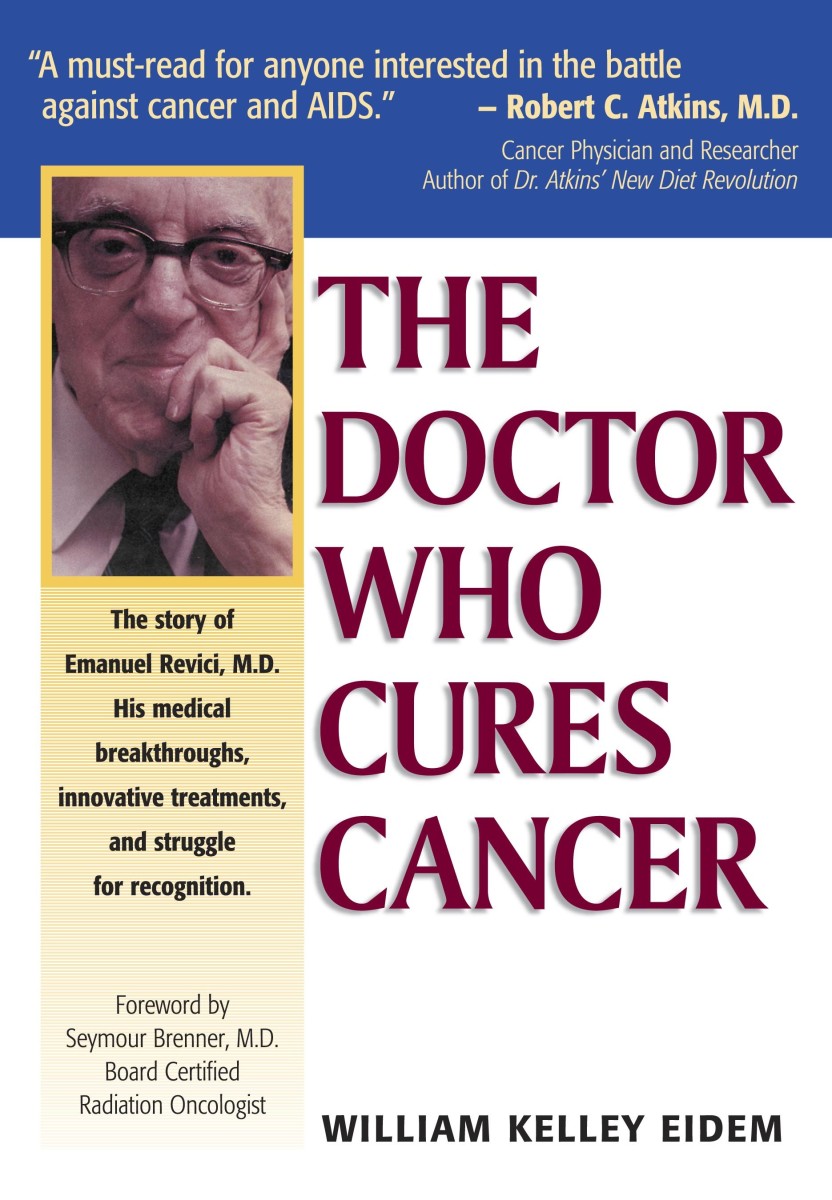The Vagaries Of Colon and Rectal Cancer
The Vagaries of Colon and Rectal Cancer
Rectal cancer is a disease in which malignant (cancer) cells form in the tissues of the rectum. Health history affects the risk of developing rectal cancer. Signs of rectal cancer include a change in bowel habits or blood in the stool.
Colon cancer is the third most commonly diagnosed cancer in the United States. Before embarking into the pros and cons of treatment of colon and rectal cancer, we have to know what the colon is in order for us to know how to prevent the diseases that affect this part of our body. It is also equally important to know about polyps and what is colon cancer, and the symptoms associated with colon cancer. What kinds of people get colon cancer, and its risk factors?
The main cause for colorectal cancer is genetics and environment. There are certainly a certain population of patients, probably around 20% of patients, where it is pretty clearly familial, meaning either they have a family history of it or they are the first in their family to have a hereditary cause for colorectal cancer. But for the vast majority of people it is unclear what caused their cancer. Most people with colorectal cancer have no symptoms, which is why there are screening guidelines so that we can start and find it early enough that it is treatable. So, one of the bigger risk factors is having a family member with a history of colorectal cancer, could be a sibling, or a parent, or even a grandparent, or sometimes even relatives that are more distant than that. The closer the family member is to the individual, usually the more direct affect it can have on the individual’s risk. Other than that the other risk factors that individuals cannot really control would be things like other conditions that cause inflammation in the colon, like inflammatory bowel disease. Those patients also have an increased risk of colorectal cancer. Other familial related or genetic causes of cancers can have increased risk of colorectal cancer. There are certain specific types of diseases that can do that, but then in terms of the things we can actually modify, smoking, like many other cancers, can have an increased risk of colorectal cancer. Weight or having an increased weight can also have an effect on that. Diet and exercise also seem to have an effect on colorectal cancer risk, but the biggest risk would be a family history of colorectal cancer, and then having a disease that may increase the risk, like inflammatory bowel disease, of the familial causes of colorectal cancer. Often this is important to know when we start thinking of treatment. Patients rarely ask if they have one disease versus other. The treatment paradigms are pretty different, and so it is important for us to differentiate. The rectum is actually the very last part of the last bowel, or the large intestine, and it is in the pelvis, and the difference from a long-term perspective is really that it has got a higher, local recurrence rate, meaning it is more likely to come back where it started than colon cancer. The local recurrence rate for rectal cancer historically before we had the treatments that we do now was up to 50%. So, now it is more like less than 10%, but it is still higher than colon cancer local recurrence, which is around 2%. The treatment is different and so we try to figure out is this in the rectum or not? And that is really based on endoscopy and exam and that tells how far from the outside world it is and it is really just in that last 10 to 12 cm that we think as rectal cancer. For most patients it is probably not super fast, but in particular patients it is faster than we expect. In any given patient, it is not possible to tell how quick it is going to grow. What to think at this juncture is a polyp, or a precancerous growth as taking 5 to 10 years to become a cancer and so that is where screening guidelines come from, it is actually the time frame in which it takes to grow. In any case if a patient goes to the doctor with colorectal cancer already, it has probably been there awhile. So, it is important the patient gets appropriate workup, get all the information needed, make sure the patient is healthy enough to undergo treatment and then move forward. Because of screening many times the doctor is able to identify, or diagnose the cancers at an earlier stage, but sometimes people may not be aware what that refers to and it just has to do with the kind of depth at which the cancer is involving the colon. So cancers that are very superficial show signs that they become cancerous, but they have not really invaded through, or all the way into the outside of the colon, so the more the cancer is sort of isolated to the surface, the more likely it is that it is not going to be fast growing tumor, or cause greater mortality related to the cancer itself. One of the goals of screening is not only for prevention of cancer, but to diagnose it at the earliest stage possible. When the patients are scoped through screening the doctors could prevent colon cancer by taking off precancerous lesions or adenomas and that is a very good outcome, and then if the cancer could be caught early, then colorectal cancer is highly curable.
When one looks at mortality and incidence, the incidence and mortality of colorectal cancer is higher in men. Some of that is due to how often people utilize the healthcare system and screening. Comparatively, women are usually better at actually going to their physicians and undergoing the recommended screening at the recommended times. Some of the affects that we see with men having higher likelihood of dying from colorectal cancer has to do with them presenting later in the disease process or with more advanced cancers. But there is some idea that men do tend to have greater number of adenomas, which are the types of polyps that have the risk of developing into cancer. So there may be some genetic factor related to men that also may have some increase in their risk of developing cancer even outside of them potentially having screening at the recommended time. But a lot of the factors that are going to be seen at outcomes could hopefully be erased if we all equally were able to undergo screening at the recommended intervals.
Some forms of cancer have a genetic or familial component, and that basically means that an individual can have a risk that they can transfer on to their children, or grandchildren, and Lynch syndrome is one of the most common familiar types of colorectal cancer where the risk is higher in those individuals. The other name for that is hereditary non-polyposis colorectal cancer and essentially it is a condition where individuals when they develop a polyp, that polyp has a much higher chance of going from a precancerous polyp to an actual colorectal cancer.
If you have three relatives that you know of with a history of colorectal cancer, and it goes across two generations, so meaning yourself, and then either your parents, or grandparents, and then if one of those individuals has a history of being diagnosed before the age of 50, then definitely it is something that you should talk to your doctor about, even if you are not at the age of screening, and there is other testing that can be done to see if someone has, the actual genetic genes that actually diagnose Lynch syndrome.
We were talking earlier about patients whose cancer gets worse quickly and actually Lynch syndrome patients is one group where that is definitely true. Not only do the polyps progress more quickly, but the cancer can become a worse stage quickly and what happens in Lynch syndrome is there is a problem with the ability to repair the DNA. So, all of us throughout our whole body were making new cells all the time where cells have died and in Lynch syndrome any time a mistake is made, it is not fixed properly. So, we all make mistakes when we make new DNA to make new cells, and those mistakes get fixed, but if you have Lynch syndrome the mistakes do not get fixed and so pretty quickly adds up problems. In some patients especially if they have had colon cancer more than once, the doctors actually sometimes will recommend to take more of the colon than just the part that has the cancer as a preventive measure. The other alternative is to do colonoscopy more frequently about every one to two years and again, in most patients that is enough to keep them from getting colorectal cancer, but depending on their overall risk, and their history, sometimes we recommend taking more of the colon out.
For treatment of colorectal cancer the basic essential things needed are blood work, CAT scans of the chest, abdomen and pelvis. The purpose of those is really just to tell the doctors has it moved on from where it started or not? In addition full colonoscopy is recommended all the way around the colon so doctors can know if there are any other problems going on so that one could identify where the problem is. Usually the endoscopist, if it is not in a clear location, will tattoo, meaning put a dye in the wall of the bowel so that the surgeon could see the tumor from the outside surgically. As long as the tumor has not moved on to other parts of the body, which is called a stage IV cancer, then the first step for colon cancer is actually to remove the tumor surgically, which can be done either laparoscopically, or through a bigger, open incision. For rectal cancer it depends on the staging, the doctor will have to get a couple of extra tests to see how far through the wall it has gone and that changes whether we can either cut it out locally through the anus, or they need chemotherapy and radiation before it is removed. There are a lot more factors to consider when it comes to rectal cancer.
The only patient population who has colorectal cancer who responds to immunotherapy are patients who have what is called MSI-High tumors. Patients who have Lynch syndrome have MSI-High tumors, but also up to about 20% of all colorectal cancers actually are MSI-High, which just means they have a lot of mutations. Those patients we know who respond to immunotherapy and all of the other patients who have more standard or the more common colorectal cancer they do not actually respond to it, so it is not used.
In general when one looks at the mortality and incidence for colorectal cancer, it is within the U.S., highest amongst African Americans, both men and women and then typically the next racial group would be the White population, White Americans, both men and women and then Hispanic and Latinos and then generally Asians and Asian Pacific Islanders who have the lowest incidence in mortality.
Rectal cancer is an adenocarcinoma, which just means it originates from the inner lining of the bowel, whereas anal cancer is actually a squamous cancer, which means it originates from the skin.
For rectal cancer it was noted that a certain percentage of the patients, probably somewhere between 20 to 30% of patients, will have a complete response if you give them radiation and chemotherapy before you do the surgery.
In rectal cancer the most common symptom is to have no symptoms. The importance of screening is of paramount importance even if the patient is feeling well, he or she do not have any symptoms. But the things that doctors usually talk about in terms of if someone was to develop a symptom from their cancer, it can be anything from having blood in the stool, weight loss for unknown reasons, in some cases abdominal pain, but I would say the most common would probably be blood in the stool, that is typically what most people initially present with. That does not always mean that it is a colon cancer. There are many reasons why there can be blood in someone’s stool, but it does mean that someone should fairly urgently receive evaluation from a physician to undergo further testing. The most common reason for blood appearance in your stool is most of them are very benign, like hemorrhoids, or other kinds of issues that otherwise healthy people can have, but certainly if you see something you should talk to your doctor about it to determine if further testing is necessary and what testing might be best for that particular individual. Unfortunately, for this cancer the most common symptom is no symptom. So, screening is really forefront in prevention and early detection of the disease. Screening for most people who do not have a family history, the recommended age starts at 50, although that may be changing.
There is very clear-cut evidence that colon cancer is preventable. Colon cancer is generally developed from polyps, adenomatous polyps like we were talking about before, which are polyps that have the factors that can eventually lead them to develop cancer, although not all adenomas do develop into cancers. But one cannot sort of predict which ones will and which ones will not. When we talk about adenomas in the colon we are generally talking about colon polyps, which can have different forms. Some of them look almost like mushrooms, where they come out of the lining of the surface of the colon. Others can be flat, some can even be depressed, so it is very important that when one undergoes a screening exam that the doctor is able to detect and remove all the polyps that are able to be found.
There are multiple types of screening that are available. Colonoscopy, and CT colonography, which is a special kind of CT, is the ones that can detect or identify polyps, whereas some of the stool testing is more geared towards the detection of cancer alone or more advanced polyps. Currently, colonoscopy is the most commonly performed colorectal cancer screening test with probably between 70 or more percent of people will undergo a colonoscopy, but it is not the correct test for everyone, and there are other tests that have been shown to reduce the mortality related to colorectal cancer. The most common would be the stool based testing, and there are several stool based tests available. The stool based tests do not require prep. They can be done at home and then mailed in for screening tests, so they can be very helpful in individuals who have difficulty accessing screening because of barriers to getting to a health care facility or issues related to the ability to complete prep.
This content is accurate and true to the best of the author’s knowledge and is not meant to substitute for formal and individualized advice from a qualified professional.
© 2020 Putcha Venu Madhav








